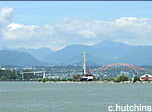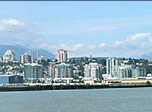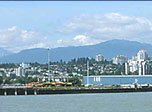Much can be said about 2021. Most, I would like to forget. I found Terry Glavin’s comments noteworthy.
He said: There's no way around it. Any overview of the state of the world in 2021 and Canada's place in it will be necessarily dreary and disturbing, so we might as well dive in straight away and get through it. If it helps, there is some cause to be hopeful — but a lot will depend on whether the world's democracies can face up to the reasons everything went so badly off the rails in the first place.
The year began with the already-discredited World Health Organization making optimistic noises about signs of light at the end of the pandemic tunnel. The year is ending with the pandemic having roared back with a vengeance out of South Africa. Daily Omicron-variant case counts are higher than anything since COVID-19 killed its first victims back in the Chinese city of Wuhan, where the authorities first denied it was happening and then pretended it was no worse than the flu, crippling an effective early response that might have saved millions of lives. The global death toll since December 2019: 5.41 million, that we know of.
It was a year of cyclones and hurricanes, wildfires and heat domes, killer floods and other extreme weather events that destroyed entire towns and ruined lives from Lytton to Mayfield, Ky. The heat dome that settled over British Columbia last summer was a one-in-1,000-year event that killed 595 people, according to the provincial coroners' service. The deluge from the “atmospheric river” that followed inundated farmlands, destroyed highways and carried away railway lines. The mayhem cut off Vancouver from the rest of Canada for days in what will likely end up being the most expensive natural disaster in Canadian history.
Next week will mark a full year since an American insurrection drew frenzied mobs to Washington, D.C., where they swarmed into the Capitol building in an attempt to prevent Democrat Joe Biden from formally succeeding Republican Donald Trump in the White House. Even though there has never been any evidence of significant voter fraud in the U.S. presidential race, a University of Massachusetts Amherst poll released this week shows that 2021 is ending with 71 per cent of Republicans still refusing to recognize the legitimacy of Biden's presidency.
In Canada, Prime Minister Justin Trudeau ordered flags to fly at half-mast over Parliament and at federal buildings across Canada following reports of a mass grave discovered at the site of the former Kamloops Indian Residential School. Across the country, statues were defaced and toppled. Dozens of churches were vandalized. Several were burned to the ground.
Canada ended up being hauled before the United Nations Human Rights Council and ordered to explain the country's treatment of Indigenous people in a rigmarole engineered by Beijing and backed by Russia, Syria, Iran, North Korea, Venezuela and Belarus. China's effort was largely in aid of staving off demands from Western countries to allow UN investigators free access to Xinjiang to investigate the brutal cultural genocide being waged against the region's Muslim-minority Uyghur population.
Then there was the wholly unnecessary September federal election. The vote ended up leaving Trudeau's Liberals with an almost identical minority position in the House of Commons as they had started with, but with the slimmest share of electoral support of any government in Canadian history. Only one in six Canadians voted for a Liberal candidate.
After more than 1,000 days of being held hostage by Beijing in retaliation for Canadian authorities' detention of Huawei chief financial officer Meng Wanzhou on a U.S. extradition warrant to face charges of fraud and conspiracy, Michael Kovrig and Michael Spavor were returned to Canada after Meng signed off on a deferred-prosecution deal with Justice Department prosecutors in New York. No longer of any use to him, Xi Jinping ordered the two Michaels released on Sept. 24.
Three days after the Michaels' release, Trudeau told reporters that the long-overdue decision on the matter of whether Canada will assert its national security prerogative to block Huawei's access to core 5G technology contracts was imminent. The decision on whether to finally join with the United Kingdom, the United States, New Zealand, Australia, Japan, Taiwan, Sweden, Norway, Denmark, France, Belgium and Estonia would be announced in “the coming weeks,” he told reporters. No decision was announced.
Neither has there been a new policy, first promised nearly three years ago, on how to handle Beijing's aggressive cyber-espionage, its harassment and intimidation of Chinese Canadians, its mandatory technology transfer obligations imposed on Canadian companies doing business in China, or its gross and brutal human rights violations. In his elaborate Dec. 16 “mandate letter” to Mélanie Joly, Trudeau's newly appointed foreign affairs minister, China isn't mentioned once.
If you have stuck with all these depressing details this far, here's some good news.
First, the Omicron variant is proving far less crippling and fatal than its predecessors, and may mark the beginning of the evolution of the coronavirus into something resembling the common cold.
Second, nobody was especially good at predicting the events that made 2021 so horrible, so you never know. If you were to predict that 2022 was going to be a banner year for world peace and freedom, you might even be proved right.
Vancouver Sun Dec. 31, 2021 by TERRY GLAVIN (edited for brevity)










No comments:
Post a Comment